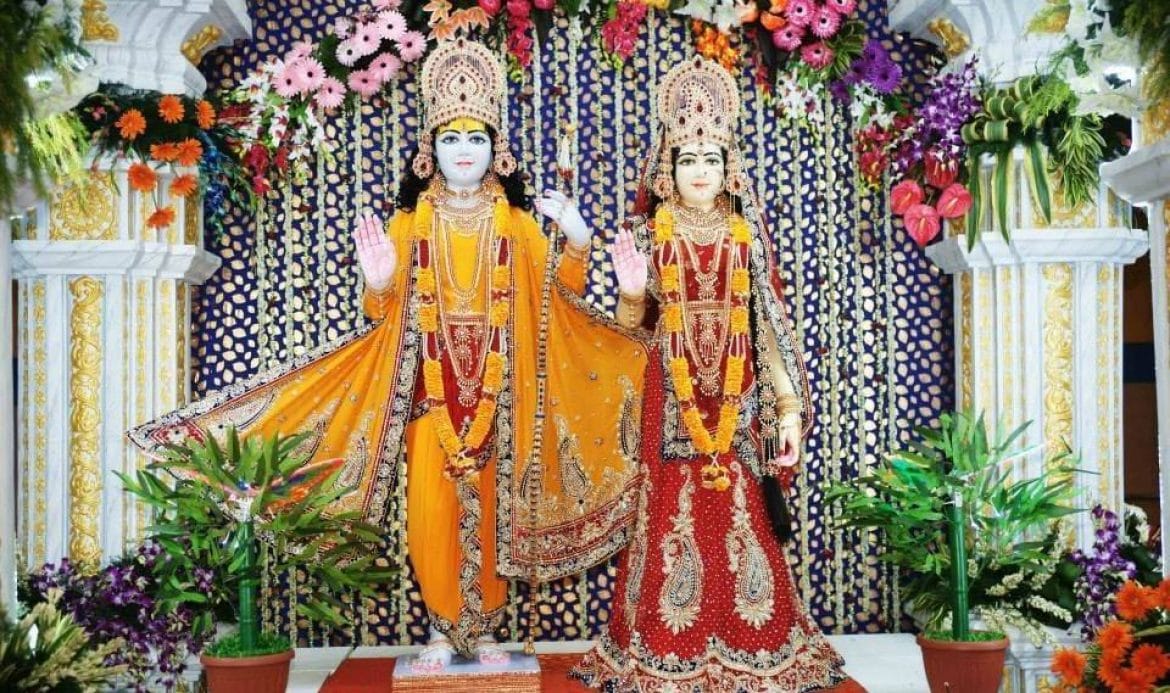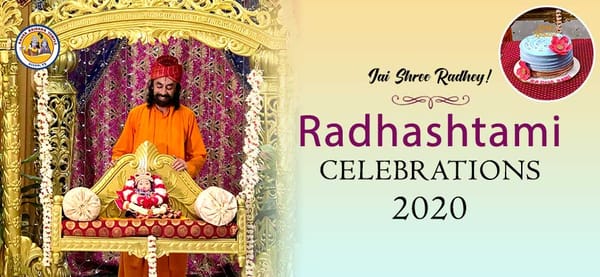Traditionally saints and devotees in India have worshipped and revered deities e.g. Meerabai worshipped Giridhar Gopal; Saint Ekanath was a devotee of Rukmini Mittal; Chaitanya Mahaprabhu loved Lord Jagannath; alvars of South India worshipped the deity of Lord Vishnu in his various temples; Jagadguru Ramanujacharya was also into deity worship. Deities are must in temples, a place of worship for most Indians.
The tradition of worshipping deities stems an ancient principle that if one loves or worships a material object with divine sentiments, the result obtained is divine. But people question why should deity worship give divine results and have doubts in this regard.
In order to better understand this principle, let’s start by understanding that focusing on material objects gives a material result. For example, when we are sick we take the appropriate medicine to heal us; we do not take soda or alcohol thinking that they will improve our health. We take the appropriate item appropriate based on the effect it is expected to have on us.
Similarly, if we apply the same concept to deities, worshipping a material object (a diety) should give us a material result. However, God is all-pervading and omni-present which means He is in everything and everywhere. Since He is in everything—sentient and insentient—He exists within us and within the deity as well. But there is another subtle point to this. God resides in His Names, Forms, Pastimes, Abodes, Virtues, and Saints. God is also omniscient which means He knows our every thought. According to the Law of Karma, He grants us the fruits of our thoughts, intentions, and actions. To worship the deity with the belief and faith that God resides within it too gives us divine results i.e. the virtuous qualities grow within us and make us pure.
There is a beautiful, heart-warming story in this regard about a little boy who used to live in the temple with a panditji (priest). One day, the panditji decided to go on a pilgrimage. He instructed the little boy to eat only after the Gods had eaten. Panditji would offer bhog, the meal, to the deities behind a closed curtain so the little boy did not have visibility into what actually transpired there. He only knew he had to offer food to the Gods and he could not eat until after they had eaten. So, he followed panditji’s instructions faithfully every day; all the three meals would be placed before the deities and he would wait for them to eat but none of them did. As a result, even the little boy would go back to his room disappointed and hungry.
Finally, on the eighth day, he could bear it no more. As he offered the food on this day and noticed that the deities were not eating, he picked up a broom and started threatening them, “Will you come here and eat or should I whack you? You have been hungry for a week and so have I. Why don’t you come down and eat? What is so terribly wrong with this food that I have cooked for you?” The deities understood his faith and intention and quickly scrambled down to eat. But the one plate was insufficient to satiate their hunger so they asked for more until all the rations were finished. But now the little boy was happy. They ate so he could also eat.
From now on, the deities ate every day. More and more food had to be bought and cooked to feed all the deities. The little boy was very tired and happy. He thought about how happy the panditji would be to learn that the deities were eating as expected.
A month passed and the panditji came back. The next day, as was the norm, he offered the bhog to the deities but none came forward to eat. The little boy was surprised. Once again, he picked up the broom with the intent of threatening the deities. However, as soon as the deities saw this, they scrambled down to eat. When panditji saw this, he fainted! After he was revived, he bowed before the little boy and said, “You have the true faith that I lacked. You believed wholeheartedly that the deities would actually eat and to keep your faith, they did! You are the blessed one. From today, you feed the deities.”
This simple story illustrates the power of faith in our lives. When our faith is so strong and staunch, even God submits to it. All because the little boy wholeheartedly believed that God resided in the stone deity.
These deities also provide us with an image of God that forms the basis for our daily meditation. Advantages of meditation on the image or a form of God were addressed in our blog titled “What Do You Meditate Upon?”
Going forward, as we go to the temple or sit before the deity at home, let’s worship it with the firm faith that God resides in it and watch our life turn for the better!







